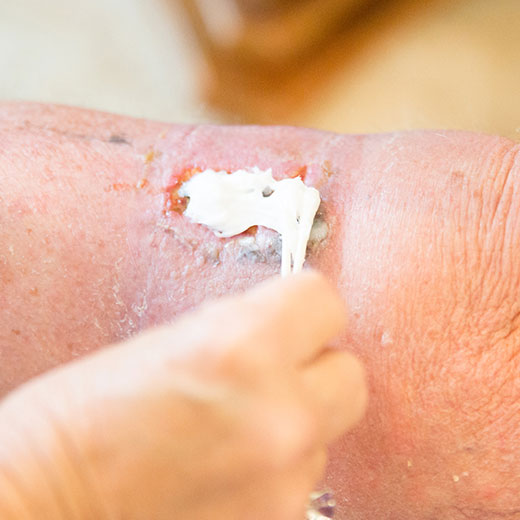WHO IS ON YOUR TREATMENT TEAM
Get to Know the Members of Your Skin Cancer Treatment Team
You deserve to have a team of doctors who are experts at finding and treating skin cancer, as well as people who can support you during treatment.
Dermatologist
A type of doctor who cares for the skin, hair, and nails. He or she likely does your skin checks each year and may be the one who found your skin cancer. You can talk with your dermatologist about your skin cancer treatment options, some of which he or she may do.
Mohs surgeon
A dermatologist who receives special training from either the American College of Mohs Surgery or the American Society for Mohs Surgery to become a cancer surgeon who performs Mohs surgery.
Mohs technician
A medical professional who prepares the skin that is removed to be viewed under the microscope. He or she works closely with the Mohs surgeon to find any cancer cells that may be in the skin. Some Mohs technicians have had special training through the American Society for Mohs Histotechnology.
Benefits manager
This could be a member of the office staff at the Mohs surgeon’s office, someone from your employer, or a person from your insurance company who can help you understand what your insurance covers and about how much Mohs surgery will cost you.
Plastic surgeon
A type of surgeon who has been trained in reconstructive procedures that fix wounds and scars. Mohs surgery causes fewer problems with how the skin looks or works compared to other types of skin cancer surgery. It does, though, leave a scar. About 1 out of 3 people people will need reconstructive or plastic surgery.
Friend or family member
Having a caregiver—a trusted family member or friend—can help you cope with the skin cancer diagnosis, learn about treatment options, and manage during and after treatment. He or she can do research, take notes during doctor visits, drive you to appointments, or help care for your skin after treatment. More importantly, at times, may be the emotional support they lend.
When You Might Need a Plastic Surgeon
Part of the Mohs surgery fellowship training is learning how to close the wound left from where the skin cancer was removed. This is call “reconstruction” or “reconstructive surgery.” If a doctor other than a fellowship-trained Mohs surgeon does your surgery, the wound is complicated, or if you are unhappy with the scar, you may be referred to a plastic surgeon. Talk with your Mohs surgeon before surgery about the options for closing your wound and if a plastic surgeon should be there the day of your surgery.
